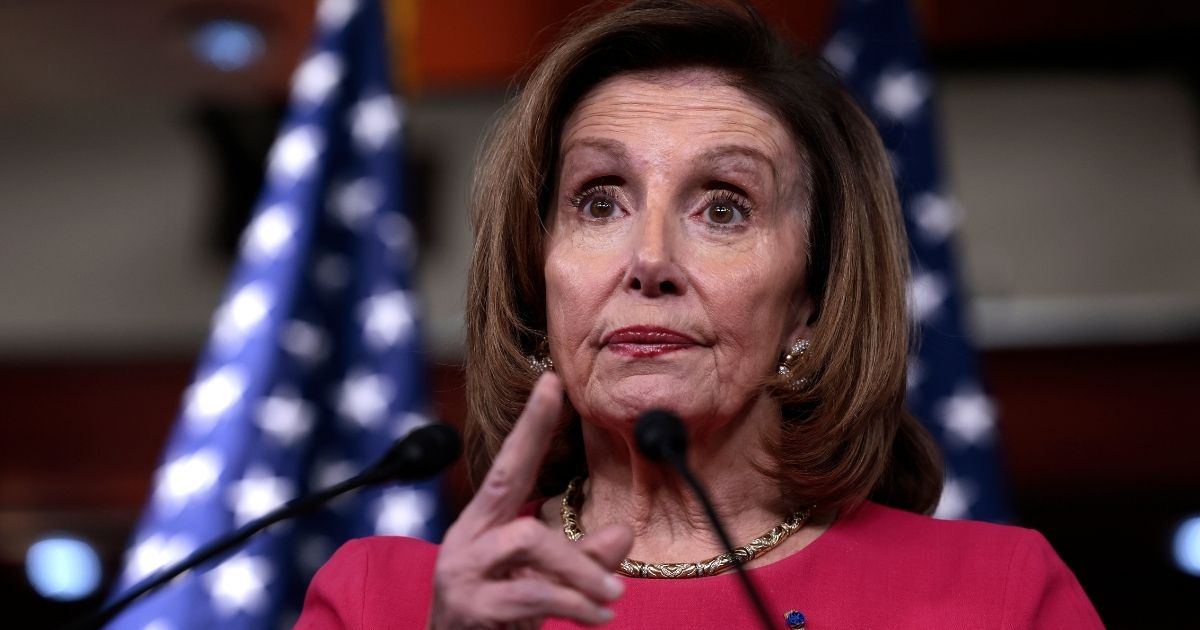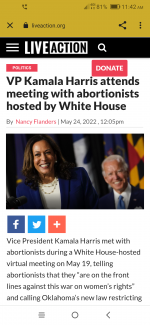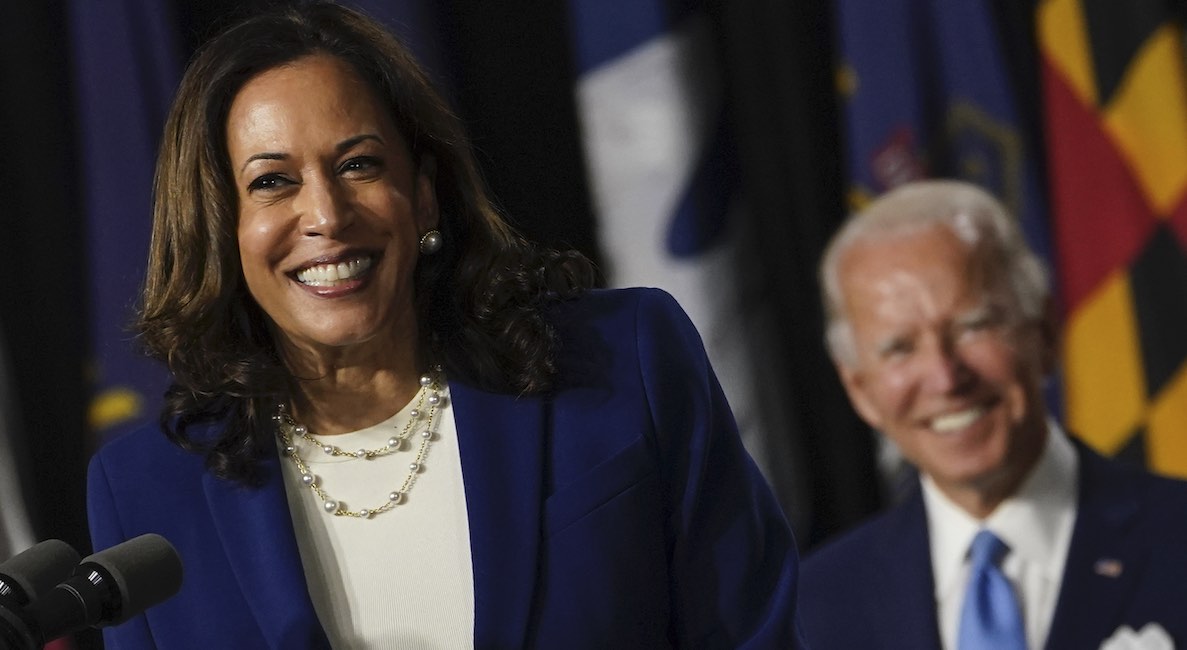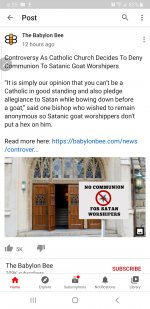You are using an out of date browser. It may not display this or other websites correctly.
You should upgrade or use an alternative browser.
You should upgrade or use an alternative browser.
Deny Communion To Joe the Rapist
- Thread starter ok doser
- Start date
Bradley D
Well-known member
American Bishops want to deny Biden communion.

 www.nytimes.com
www.nytimes.com

Targeting Biden, Catholic Bishops Advance Controversial Communion Plan (Published 2021)
The decision was aimed at the nation’s second Catholic president and exposed bitter divisions in American Catholicism.
Idolater
"Matthew 16:18-19" Dispensationalist (Catholic) χρ
Thanks for your link, text below.American Bishops want to deny Biden communion.

Targeting Biden, Catholic Bishops Advance Controversial Communion Plan (Published 2021)
The decision was aimed at the nation’s second Catholic president and exposed bitter divisions in American Catholicism.www.nytimes.com
Points:
- All the way at the end a bishop is quoted as saying, "...those who obstinately persist in manifest grave sin are not to be admitted to holy communion..." which is basically what Matthew 18:17 means to Catholicism, at least as far as I'm concerned. iow "let him be unto thee as an heathen man and a publican" = "not to be admitted to Holy Communion"
- This was a good part:
| ...Bishop Robert W. McElroy of San Diego cautioned that moving forward would make it “impossible to prevent the weaponization of the Eucharist in partisan battles.” “Once we legitimate public policy-based Eucharistic exclusion as a regular part of our teaching office — and that is the road to which we are headed — we will invite all of the political animosities that so tragically divide our nation into the very heart of the Eucharistic celebration,” he said. “That sacrament which seeks to make us one will become for millions of Catholics a sign of division.” |
- This is the most distressing part of the whole article:
Bishops grew alarmed about communion in 2019, before Mr. Biden was a front-runner in the presidential race, when a Pew poll found that only about a third of U.S. Catholics believed central Catholic teaching that the communion bread and wine literally becomes the body and blood of Christ during Mass.
Spoiler
| Targeting Biden, Catholic Bishops Advance Controversial Communion Plan The decision was aimed at the nation’s second Catholic president and exposed bitter divisions in American Catholicism. By Elizabeth Dias June 18, 2021Updated 8:19 p.m. ET The Roman Catholic bishops of the United States, flouting a warning from the Vatican, have overwhelmingly voted to draft guidance on the sacrament of the Eucharist, advancing a push by conservative bishops to deny President Biden communion because of his support of abortion rights. The decision, made public on Friday afternoon, is aimed at the nation’s second Catholic president, perhaps the most religiously observant commander in chief since Jimmy Carter, and exposes bitter divisions in American Catholicism. It capped three days of contentious debate at a virtual June meeting of the United States Conference of Catholic Bishops. The measure was approved by a vote of 73 percent in favor and 24 percent opposed. The Eucharist, or holy communion, is one of the most sacred rituals in Christianity, and bishops have grown worried in recent years about declining Mass attendance and misunderstanding of the importance of the sacrament to Catholic life. But the move to target a president, who regularly attends Mass and has spent a lifetime steeped in Christian rituals and practices, is striking coming from leaders of the president’s own faith, particularly after many conservative Catholics turned a blind eye to the sexual improprieties of former President Donald J. Trump because they supported his political agenda. It reveals a uniquely American Catholicism increasingly at odds with Rome and Pope Francis. Asked about the bishops’ decision at a vaccination event on Friday, Mr. Biden said it was “a private matter and I don’t think that’s going to happen.” The action is the latest sign of how the nation’s bitter political divisions are shaping religious life. Christians across denominations are facing similar divides. Earlier this week at the Southern Baptist Convention meeting in Nashville, a more moderate majority narrowly headed off a takeover attempt by a hard-right movement. The text of the proposal itself has not been written and would ultimately require approval by a two-thirds majority vote. The proposed outline, earlier reported by America Magazine, said it would “include the theological foundation for the Church’s discipline concerning the reception of Holy Communion and a special call for those Catholics who are cultural, political, or parochial leaders to witness the faith.” Some conservatives want to use such a statement as theological justification to deny communion to Mr. Biden and Catholic politicians like him who support abortion rights. The decision immediately drew criticism from 60 Catholic Democrats in Congress, who urged the bishops “to not move forward and deny this most holy of all sacraments” and who challenged the bishops by outlining their own commitment to “making real the basic principles that are at the heart of Catholic social teaching.” But the fact that Mr. Biden’s views on abortion are even a matter of public discussion is already a victory for conservative Catholics. Mr. Biden, like Pope Francis, embodies a liberal Christianity focused less on sexual politics and more on racial inequality, climate change and poverty. His administration is a reversal of the power that abortion opponents, including bishops who advanced the measure, enjoyed under Mr. Trump. The fight comes as anti-abortion activists across the United States are emboldened and as reproductive rights activists want Mr. Biden to speak more forcefully in their defense. State legislatures have introduced more than 500 abortion restrictions over the past five months, and the Supreme Court, with its newly expanded conservative majority, agreed to take up a case on a Mississippi law that bans most abortions at 15 weeks, which could challenge the constitutional right to abortion established in Roe v. Wade. Five of the court’s six Catholic justices were appointed by Republicans. The bishops are expected to vote on the forthcoming statement in November, ahead of the midterm elections, giving conservatives a tool to criticize Democratic politicians throughout the campaign cycle. Abortion has long been one of the most mobilizing political forces for the religious right. That subtext was made plain as the bishops debated the topic for more than two hours on Thursday: “I can’t help but wonder if the years 2022 and 2024 might be part of the rush,” Bishop Robert M. Coerver of Lubbock, in Texas, said. Bishop Kevin C. Rhoades, who leads the bishops’ Committee on Doctrine, which put forward the communion effort, replied in a news conference that the upcoming midterm and presidential elections “never entered my mind, or the committee’s.” The United States Conference of Catholic Bishops, an assembly of the country’s 433 active and retired bishops, can issue guideline statements, but it does not have the authority to decide who can or cannot receive the sacrament of communion. That power is reserved for the local bishop, who has autonomy in his diocese, or the Pope. Cardinal Wilton Gregory, the archbishop of Washington and the nation’s first African-American cardinal, has made it abundantly clear that he does not support denying communion to Mr. Biden. Bishop-elect William Koenig of Wilmington, Del., Mr. Biden’s hometown, has remained largely quiet on the issue ahead of his installation next month. Usually the bishops’ annual June meeting is a dry affair. But this week’s was the most riveting in years, not only because of the topic but also because it revealed the stark divide, theologically and politically, among the church’s U.S. leaders. The vote was technically about drafting a theological statement on the Eucharist, and in part comes from the bishops’ long-term strategic plan to address declining Mass attendance and misunderstanding about the sacrament. Bishops grew alarmed about communion in 2019, before Mr. Biden was a front-runner in the presidential race, when a Pew poll found that only about a third of U.S. Catholics believed central Catholic teaching that the communion bread and wine literally becomes the body and blood of Christ during Mass. But debates over two days this week revealed the political contours of the fight, as bishop after bishop defended his corner of a polarized American Catholicism. The meeting opened on Wednesday with a 45-minute debate over whether to even approve the agenda because it would include the controversial vote. A retired bishop, Michael Pfeifer of San Angelo, in Texas, urged the conference to address the “new abortion initiatives of our president, especially the one about infanticide.” (Mr. Biden does not support infanticide.) Archbishop Mitchell Rozanski of St. Louis attempted what was effectively a filibuster of the communion discussion entirely. Conservative bishops pressed their case in a more than two-hour debate on Thursday afternoon. “We’ve never had a situation like this where the executive is a Catholic president who is opposed to the teaching of the church,” Bishop Liam Cary of Baker, in Oregon, said. Bishops from places like Tyler, Texas, and Sioux Falls, S.D., argued that the people in their churches wanted bishops to create the communion document. Bishop Donald J. Hying of Madison, in Wisconsin, said he speaks almost daily with Catholics “who are confused by the fact that we have a president who professes devout Catholicism and yet advances the most radical, pro-abortion agenda in our history.” Archbishop Salvatore Cordileone of San Francisco, the home diocese of House Speaker Nancy Pelosi, who is a Catholic Democrat, said bishops would not be taken seriously if they did not create the communion document. “Our credibility is on the line,” he said. “The eyes of the whole country are on us right now.” Bishops seen as allies of Pope Francis’ direction for the church pushed back. Bishop Robert W. McElroy of San Diego cautioned that moving forward would make it “impossible to prevent the weaponization of the Eucharist in partisan battles.” “Once we legitimate public policy-based Eucharistic exclusion as a regular part of our teaching office — and that is the road to which we are headed — we will invite all of the political animosities that so tragically divide our nation into the very heart of the Eucharistic celebration,” he said. “That sacrament which seeks to make us one will become for millions of Catholics a sign of division.” When Bishop Joseph J. Tyson of Yakima asked if the debate was focusing on abortion to the exclusion of other issues on which public figures might disagree with the Church’s teachings, Bishop Rhoades blamed the publicity for overly focusing on abortion instead of other issues like human trafficking and white supremacy. About 56 percent of U.S. Catholics support legalized abortion, but about two-thirds of Catholics who attend Mass regularly do not, according to a Pew Research Center survey conducted in March. Catholics in general are divided on party lines over whether Mr. Biden should receive communion: 55 percent of Catholic Republicans think he should be denied communion, and 87 percent of Catholic Democrats think he should not, according to Pew. The tension over Mr. Biden’s abortion policies has been growing for months. Shortly after Mr. Biden’s election in November, Archbishop José H. Gomez of Los Angeles, the president of the United States Conference of Catholic Bishops, announced the unusual creation of a working group to address conflicts that could arise between his administration’s policies and church teaching. On Inauguration Day, Archbishop Gomez issued a statement criticizing Mr. Biden for policies “that would advance moral evils” especially “in the areas of abortion, contraception, marriage, and gender.” Mr. Biden and Pope Francis have been political allies for years, especially because of the partnership between the Vatican and the United States during President Barack Obama’s tenure on issues like the normalization of relations with Cuba and the Paris Climate Agreement. Last month Pope Francis’ top doctrinal official, Cardinal Luis Ladaria, warned the U.S. bishops in a letter that a policy on communion as relates to politicians could “become a source of discord rather than unity.” The debate will grow in the months ahead, as the doctrine committee moves forward. The document will be one for all Catholics, not individuals, Bishop Rhoades told the bishops. “We need to accept the church’s discipline that those who obstinately persist in manifest grave sin are not to be admitted to holy communion,” he said. But, he added, “We haven’t even written it yet.” © 2021 The New York Times Company |
Idolater
"Matthew 16:18-19" Dispensationalist (Catholic) χρ
Would the Apostles, if they were on earth today, teach that President Biden should abstain from receiving Communion, until he publicly supports ramping up restrictions on abortion, up to and including a total ban?
I'm not sure.
If hypothetically democracy had prevailed during the earliest days of the Church, rather than empire and warlords and tribal chiefs and absolute monarchies or other autocracies, and say 90% or more of the culture supported free abortions for all, does a Christian candidate for office have to run on an abortion-ban platform? He'll never get elected. Christians would have never been elected to office all the way back then if that were the rule. But that's just hypothetical.
There are people who are certain in one direction or the other here, I just have some thoughts, but I'm not certain. And as Bradley's article suggests, the bishops themselves are also unsure what to do about this phenomenon.
I'm not sure.
If hypothetically democracy had prevailed during the earliest days of the Church, rather than empire and warlords and tribal chiefs and absolute monarchies or other autocracies, and say 90% or more of the culture supported free abortions for all, does a Christian candidate for office have to run on an abortion-ban platform? He'll never get elected. Christians would have never been elected to office all the way back then if that were the rule. But that's just hypothetical.
There are people who are certain in one direction or the other here, I just have some thoughts, but I'm not certain. And as Bradley's article suggests, the bishops themselves are also unsure what to do about this phenomenon.
Idolater
"Matthew 16:18-19" Dispensationalist (Catholic) χρ

Priest: The big question for Catholic bishops is not really about Joe Biden and Communion | CNN
Father Edward Beck writes, "Communion is meant to signify what the word means: with oneness, with unity. The contentious debate of this week's American Catholic bishops' meeting threatens to have this sacrament become a symbol of division and a political and religious weapon."
Idolater
"Matthew 16:18-19" Dispensationalist (Catholic) χρ
With unrepentant grave sinners, no, including Protestant Christians, Matthew 18:17. What's unclear here is whether President Biden is guilty of grave sin in this. It is clear that our bishops are unclear on the matter as well, they're disputing about it."with oneness, with unity"
Do YOU seek oneness and unity with unrepentant sinners?
The question is whether what he's doing constitutes in itself grave sin. It would be far simpler to decide the case if he were actually the one murdering innocent children. Or if he were driving pregnant women to abortionists. Or if he were supporting laws that force women to terminate their pregnancies. If he were doing anything like that, where he's the perpetrator or an accessory, this is easy to decide, and our bishops wouldn't be disputing with each other.With sinners who support the murder of the innocent child?
But that's not what he's doing. And that's perhaps why the bishops themselves are confused about how to proceed here. But the other thing about this issue is that not all abortions are indiscriminate. Indiscriminate abortion is certainly murder, but there can be abortion procured that is not murder, and if the president's policies protect those tragic but necessary terminations, maybe that's his saving grace. But he would need to articulate something along those lines, at least as far as I'm concerned.
ok doser
lifeguard at the cement pond
As an elected senator for many years, as a vice president for 8 years and now as president, Joe has had the unique opportunity to push for legislation that made abortion illegal, as it had been before Roe V Wade.With unrepentant grave sinners, no, including Protestant Christians, Matthew 18:17. What's unclear here is whether President Biden is guilty of grave sin in this. It is clear that our bishops are unclear on the matter as well, they're disputing about it.
The question is whether what he's doing constitutes in itself grave sin. It would be far simpler to decide the case if he were actually the one murdering innocent children. Or if he were driving pregnant women to abortionists. Or if he were supporting laws that force women to terminate their pregnancies. If he were doing anything like that, where he's the perpetrator or an accessory, this is easy to decide, and our bishops wouldn't be disputing with each other.
But that's not what he's doing. And that's perhaps why the bishops themselves are confused about how to proceed here. But the other thing about this issue is that not all abortions are indiscriminate. Indiscriminate abortion is certainly murder, but there can be abortion procured that is not murder, and if the president's policies protect those tragic but necessary terminations, maybe that's his saving grace. But he would need to articulate something along those lines, at least as far as I'm concerned.
Not only has he failed to use that unique opportunity, he has explicitly supported the right of women to choose to murder their children. In this he bears the same grave sin that they do.
Idolater
"Matthew 16:18-19" Dispensationalist (Catholic) χρ
Many US bishops are fixing to try to do something. We'll see if anything happens. The pope might have to weigh in too.As an elected senator for many years, as a vice president for 8 years and now as president, Joe has had the unique opportunity to push for legislation that made abortion illegal, as it had been before Roe V Wade.
Not only has he failed to use that unique opportunity, he has explicitly supported the right of women to choose to murder their children. In this he bears the same grave sin that they do.
It's all very exciting.
Idolater
"Matthew 16:18-19" Dispensationalist (Catholic) χρ
Reasonable answer.
Joe Biden supports the murder of the innocent.
Nothing more needs to be said.
- Colorado's Republican Governor John Love signed the nation's first permissive abortion law in 1967.
- Republican U.S. Supreme Court Justice Harry Blackmun wrote Roe v. Wade.
- The 7-to-2 Roe v. Wade ruling was approved with five a Republican majority of five votes.
- The Republican Justices now on the Court (including Scalia, Thomas, Alito and Roberts) oppose personhood.
- All six Republican judges on the 11th circuit (nominated by Reagan, Bush Sr. & George W. Bush) voted to kill Terri Schiavo.
- Republican "pro-life" heroine Priscilla Owen voted to abort "Baby 10" as a Texas Supreme Court judge.
- Republican "pro-life" hero Samuel Alito sided with Planned Parenthood in repeated 3rd-circuit rulings, including ruling to keep partial birth abortion legal.
- Republican George W. Bush refused to support South Dakota's total ban on abortion.
- Hundreds of pro-life laws that regulate abortion that will actually keep abortion legal after Roe is overturned such as the Informed Consent laws.
ok doser
lifeguard at the cement pond
Yay!

 www.westernjournal.com
www.westernjournal.com

Bishop Officially Bars Nancy Pelosi from Receiving Holy Communion for Abortion Support
Archbishop Salvatore Cordileone announced that Nancy Pelosi is to be denied communion in his district, citing her abortion support.
 www.westernjournal.com
www.westernjournal.com
Yay!

Bishop Officially Bars Nancy Pelosi from Receiving Holy Communion for Abortion Support
Archbishop Salvatore Cordileone announced that Nancy Pelosi is to be denied communion in his district, citing her abortion support.www.westernjournal.com
Indeed!
I told a story recently: The story of the Woman caught in adultery, but with a twist. The Woman caught in adultery is about to be stoned to death, but she is brought to Jesus, and Jesus tells her, "You are forgiven. Now go and sin no more."
Here is the twist: After Jesus tells the woman "Go and sin no more" the woman turns around and says, "Heck no, I'll sin as much as I want to. I want you to forgive me, but I will sin as much as I want to."
THAT is exactly what Nancy Pelosi has done for decades. She deserved to be excommunicated from the Church decades ago, along with many others.
Archbishop Salvatore J. Cordileone was actually quite lenient with her, not excommunicating her, but denying her communion until she repents. Ironically, all he really did was remind her of the same obligation that all Catholics have, which is that we must always repent of our sins and go to confession before we receive communion. So, in fact, the Archbishop has only enforced that which I do as a matter of practice.
ok doser
lifeguard at the cement pond


VP Kamala Harris attends meeting with abortionists hosted by White House
Vice President Kamala Harris met with abortionists during a White House-hosted virtual meeting on May 19, offering the abortionists her support.



